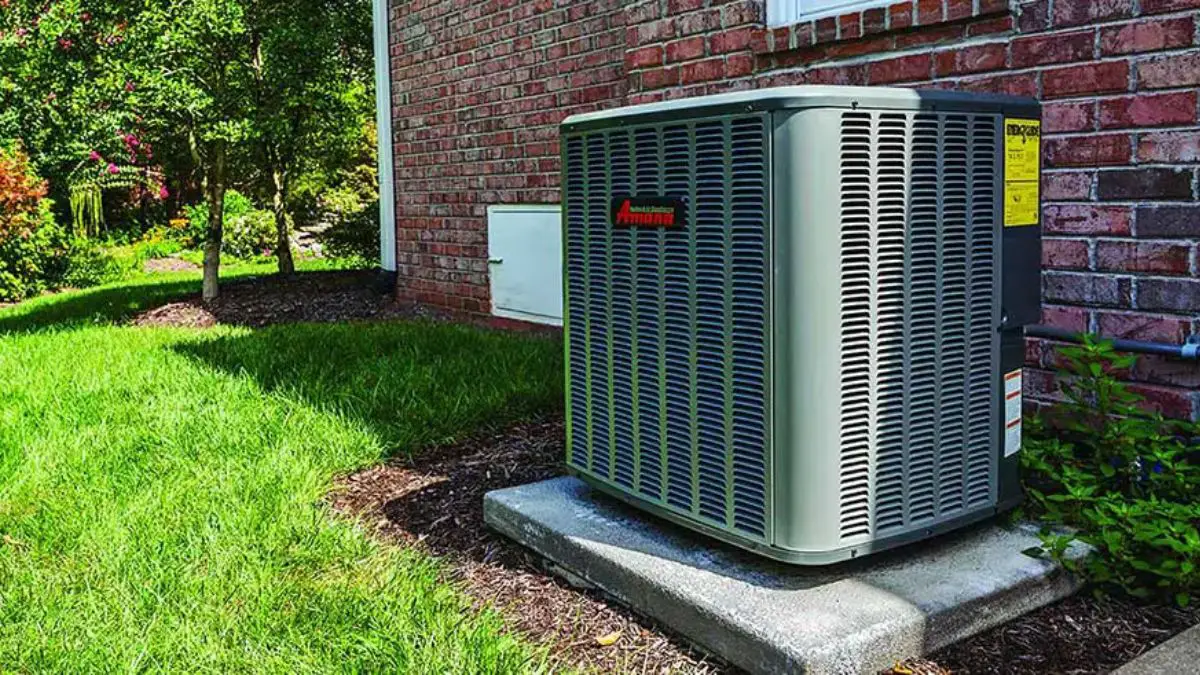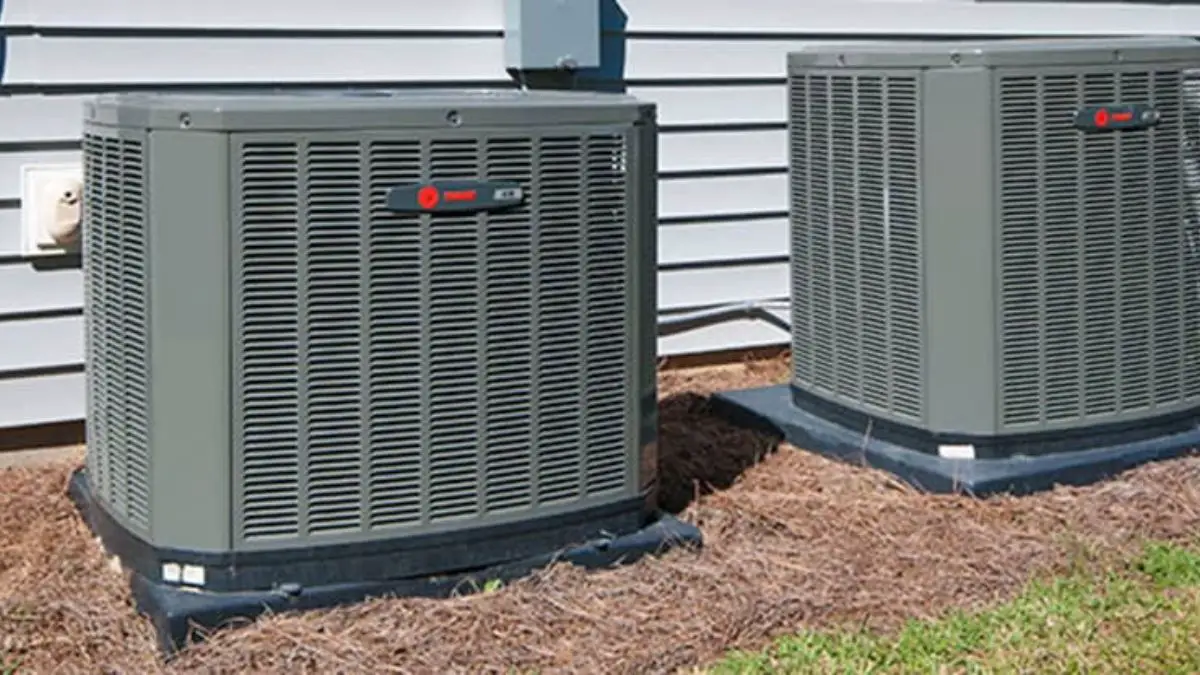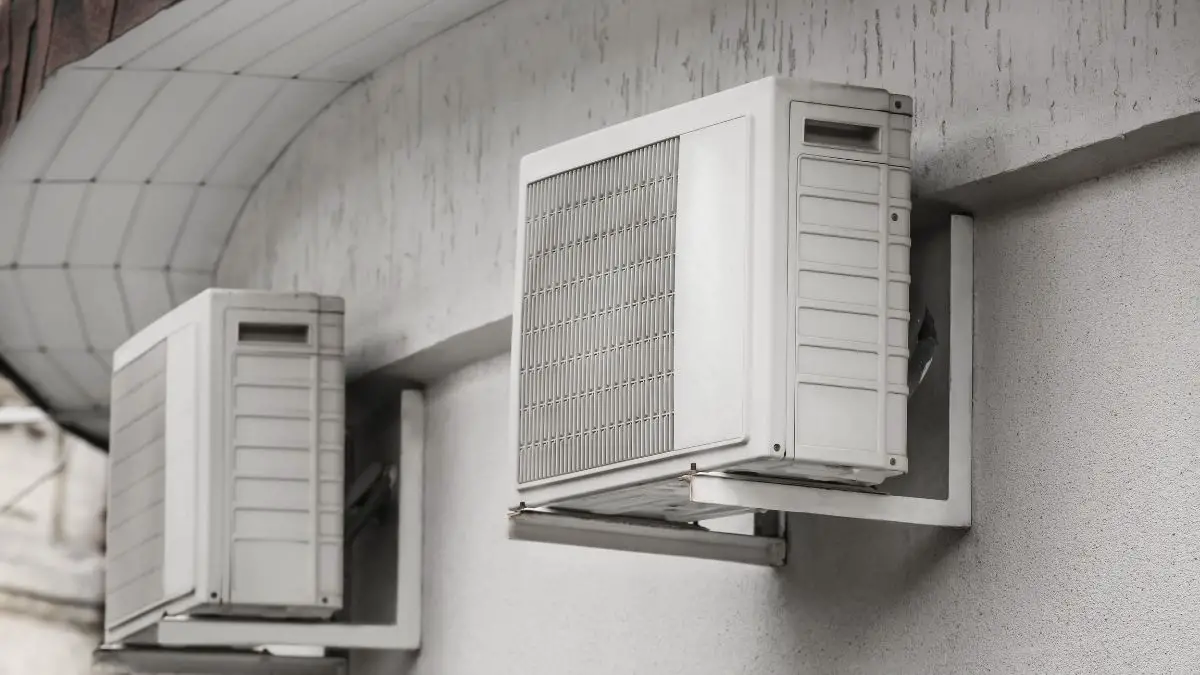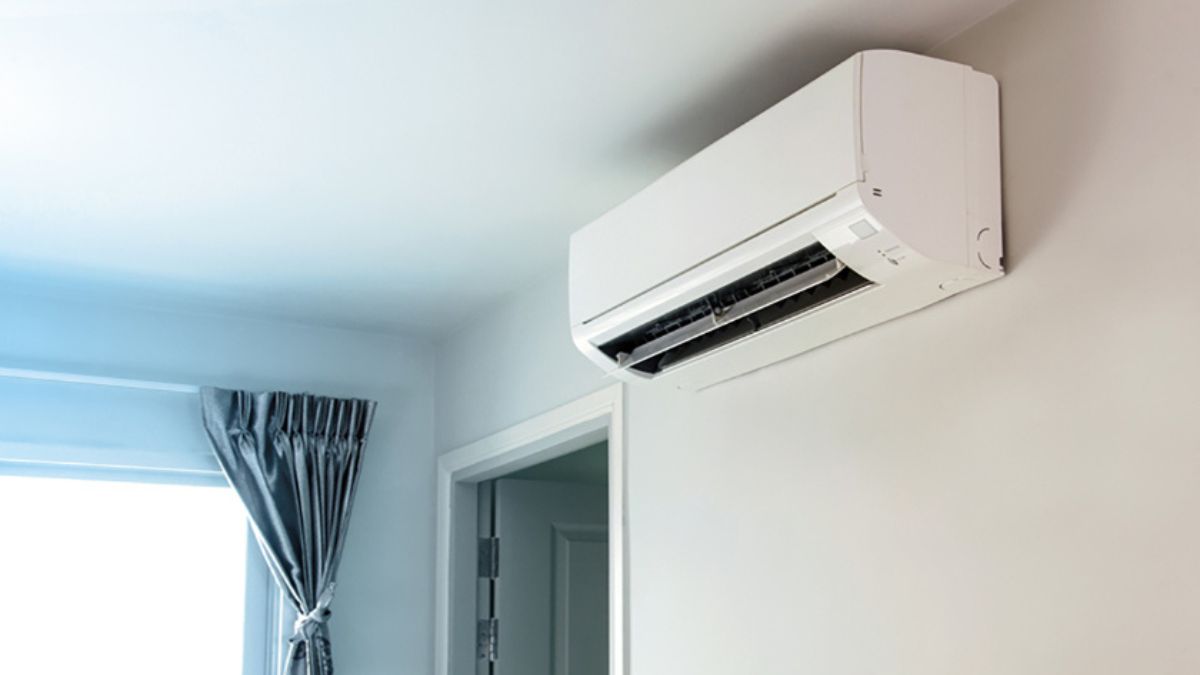Heat pumps are essential to heating and cooling your home, especially in summer and winter. But buying a heat pump is a significant investment, so knowing how long a heat pump system will last makes sense.
So, how long should a heat pump last? A heat pump system should last about 15 years. The lifespan of a heat pump largely depends on how well the heat pump system is maintained, its climate, and location. A well-maintained heat pump can last up to 20 years. A heat pump may only last about 8 to 10 years in coastal climates.
In this article, we’ll tackle various topics as we address this pertinent question, beginning with how a heat pump works, signs that your unit needs a replacement, and finally, a breakdown of how different factors affect the functioning hence the life expectancy of heat pumps. Let’s jump right in.
The maintenance level can increase your heat pump’s life expectancy by up to 10 years. The table below outlines a reasonable expectation for how long the heat pump will last based on how well the system is maintained.
Essential Routine Maintenance Items:
- Changing your air filter regularly (1-3 months)
- Getting cleaning and servicing annually
- Remove debris from around your outside unit
- Replacing refrigerant insulation as needed
| Level of Routine Maintenance | Split Heat Pump | Package Heat Pump | Ductless Heat Pump |
|---|---|---|---|
| No Maintenance | 10-15 years | 12-15 Years | 8-12 Years |
| Low Maintenance (1-2 Items) | 15-18 years | 15-18 Years | 12-15 Years |
| Some Maintenance (2-3 Items) | 18-20 years | 18-22 Years | 15-18 Years |
| All Maintenance (4 items) | 21-25 years | 22-25 Years | 18-20 Years |
According to Fischer Heating and Air, surveys and studies of the Air Conditioning, Heating & Refrigeration Institute (AHRI) and the National Association of Home Builders (NAHB) put the average heat pump life expectancy between 14 and 16 years if the system is regularly maintained.
Tri-County Heating & Cooling states that the exact lifespan of a heat pump varies, and the results of several surveys concur with similar findings: most heat pumps last between 14 and 16 years when they receive maintenance regularly.
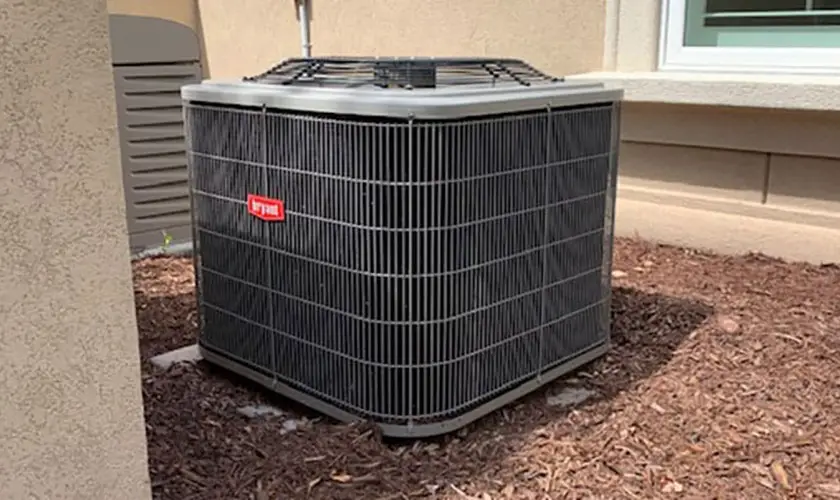
How Does a Heat Pump Work?
A heat pump is a type of HVAC (heating, ventilation, and air conditioning) device. It’s an all-in-one system that performs both heating and cooling functions. Simply put, a heat pump transfers heat energy from one location at a lower temperature to another warmer area.
This heat exchange happens through a refrigerant gas that moves between two heat exchangers.
In cooling mode, a heat pump transfers heat from inside your home to the outside. In heating mode, a heat pump extracts heat from the outside and moves it inside. See our article Does a Heat Pump Bring Outside Air Indoors?
How Can You Tell When Your Heat Pump Needs Replacement?
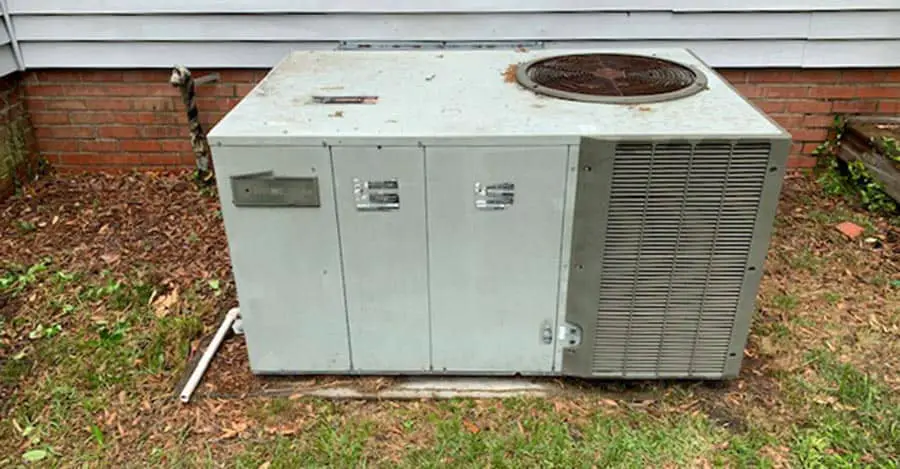
After using your heat pump for several years, even with routine cleaning and maintenance, your heat pump will still eventually need to be replaced. Here are some telltale signs to look out for:
Unusually Loud, Strange Noises and a Strange Smell
Heat pumps generally make noises when starting up or shutting down, switching to defrost mode, or even constantly humming during operation. These are all normal.
But if you suddenly notice a change in the sounds coming from your system, it’s the right time to get a technician to check it out. If the problem persists, it’s your cue to buy a new unit.
Heat pumps vibrate naturally. However, this vibration usually worsens over time. As this occurs, it can damage parts, cause a gas leak, or your heat pump can become unlevel.
Foul smells are also signs to look out for. If it can’t be fixed by filter maintenance or replacement, then it’s likely more significant problems like mold or mildew build up in the unit on the evaporator coil or inside the ductwork.
Failure to Heat or Cool as per the Temperature Setting
Heat pumps produce warm or cold air according to the temperature setting. When this becomes faulty, your heat pump starts producing cold air when you’ve set it to warm (or vice versa).
It can be due to a failed reversing valve or a check valve inside your heat pump. It is a common occurrence with older systems. Confirm that the problem is not a simple obstruction, then start shopping for a new unit.
Reduced Airflow
If your system is not operating at its best, a significant decrease in airflow can be noted. If a technician can’t correct this, a new heat pump is your best option.
Leaking of the Refrigerant or Excess Condensation
A little condensation is a normal occurrence with heat pumps. But if you notice your appliance dripping any fluid inside or outside, you had better call the technicians. This is not only a nuisance but also a safety concern. When combined with advancement in the age of your unit, it’s a clear indicator that you need to replace your heat pump.
High Energy Bills
Heat pumps are one of the most energy-efficient HVAC systems. You are bound to get increased energy bills if that efficiency is lost. Of course, an energy audit is necessary to ascertain if your heat pump is the reason for the spike in energy costs.
If your heat pump is the culprit, first work on thoroughly servicing the unit after covering all your bases, but if the high bills keep coming, then your heat pump may be too old to work efficiently anymore.
Frequent Need for Repairs Long After the Warranty Expires
As we’ve seen so far, it’s not shocking for your heat pump to malfunction, and it requires fixing once in a while (even if you regularly service it). But when you begin doing frequent significant repairs or replacements, you may need to consider the cost implications and opt for a new unit.
Heat Pump Replacement Cost
Are you considering purchasing and installing a heat pump in your home? Newer models have benefits like increased efficiency and lower operating costs over time – making heat pumps an attractive choice to many homeowners.
However, before taking the plunge, it’s essential to research how much heat pumps cost. Generally speaking, newer models cost anywhere between $3,800 to $7,500. This cost includes materials and the heat pump installation.
Replacing an older current system with a newer model is slightly less expensive than a completely new system installation – and could cost anywhere from $3,500 to $6,000 for the entire process.
Doing your research ahead of time and having expert review options available is the best way to find ways to save money on this significant investment in your home’s comfort.
Factors That Affect the Lifespan of Your Heat Pump
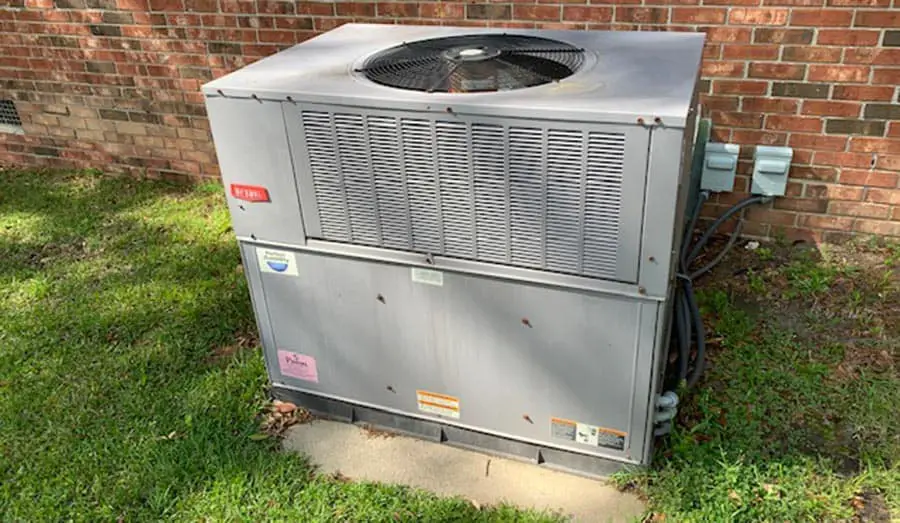
Typically, newer units can function for 15-20 years. Several factors determine whether this lifespan will be shorter or longer. Some of these things are within your control, while others are inevitable.
Here’s a list of the factors that determine your heat pump’s longevity:
Manufacturer Comparison
There are several manufacturers of heat pumps. Different brands offer different quality heat pumps. Looking at factors like pricing, the quality of the machine’s components, and the warranties, you’ll find that not all heat pumps are a good idea and are bound to last you as long as they should.
Can a heat pump last 25 years? How long should a heat pump last? Typically the longest heat pump life expectancy is up to around 22 years. A heat pump’s longevity will depend on proper installation, proper maintenance, and the manufacturer.
Here is a list of the top 10 heat pump manufacturers with the best average lifespans. PickHVAC has taken the time to rank them according to their performance to help you find a great heat pump with a longer lifespan.
| Brand | Components | Warranty | Price | Total | Efficiency (SEER) |
|---|---|---|---|---|---|
| Tempstar | Excellent | Excellent | Excellent | 9 | Up to 19 |
| Goodman | Very Good | Excellent | Excellent | 8 | Up to 19 |
| Daikin | Very Good | Excellent | Very Good | 7 | Up to 23 |
| Maytag | Very Good | Very Good | Very Good | 6 | Up to 20 |
| York | Very Good | Very Good | Very Good | 6 | Up to 20 |
| American Standard | Excellent | Good | Good | 5 | Up to 22 |
| Trane | Excellent | Good | Good | 5 | Up to 22 |
| Carrier | Excellent | Good | Good | 5 | Up to 21 |
| Bryant | Excellent | Good | Good | 5 | Up to 21 |
| Armstrong | Very Good | Good | Very Good | 5 | Up to 21 |
Key:
- Excellent = 3 points
- Very good = 2 points
- Good = 1 point
Installation
One factor that’s probably more important than the heat pump brand you pick is the installer you choose. Installation of heat pumps should be handled with great caution and by a professional HVAC technician who’ll ensure it’s appropriately done by following the correct procedures. If done wrongly, it may affect the lifespan of the unit.
Level of Maintenance
You can extend your heat pump’s lifespan by ensuring proper and regular heat pump service maintenance. This includes regularly cleaning the device, changing the air filters, and ensuring the defrost feature functions optimally. According to experts, regularly servicing your heat pumps can last an additional two to three years.
Climate
This is one of the factors that are out of your control. If you live in a place with more prolonged and colder winters, your heat pump will run longer and harder. This may significantly reduce its lifespan.
Location
Heat pumps in coastal regions notably have a shorter lifespan. The salty atmosphere is why it is corrosive and slowly degrades the equipment in the long run.
Usage
Overuse or wrong usage also reduces the life expectancy of heat pumps. For example, you are running the system with doors and windows open.
Conclusion
Your heat pump makes life easier by keeping you comfortable during hot summers and cold winters. Its efficiency, however, cannot last forever. To enjoy your smooth-running, energy-efficient heat pump for many years, here are some things under your control that you can do to enjoy its longevity:
- Buy a high-quality unit
- Get a professional installer
- Perform regular check-ups and cleaning of the system
- Do regular maintenance and timely repairs
- Use your unit correctly
Check for signs that may mean you need a replacement (especially after using your unit for several years). These signs include:
- Strange noises and smell
- Inconsistencies between the air produced and the settings
- Reduced airflow
- Leakages
- Spike in energy costs
- Frequent repairs after warranty expire


